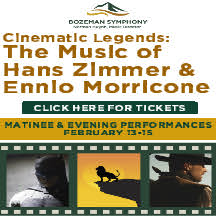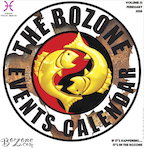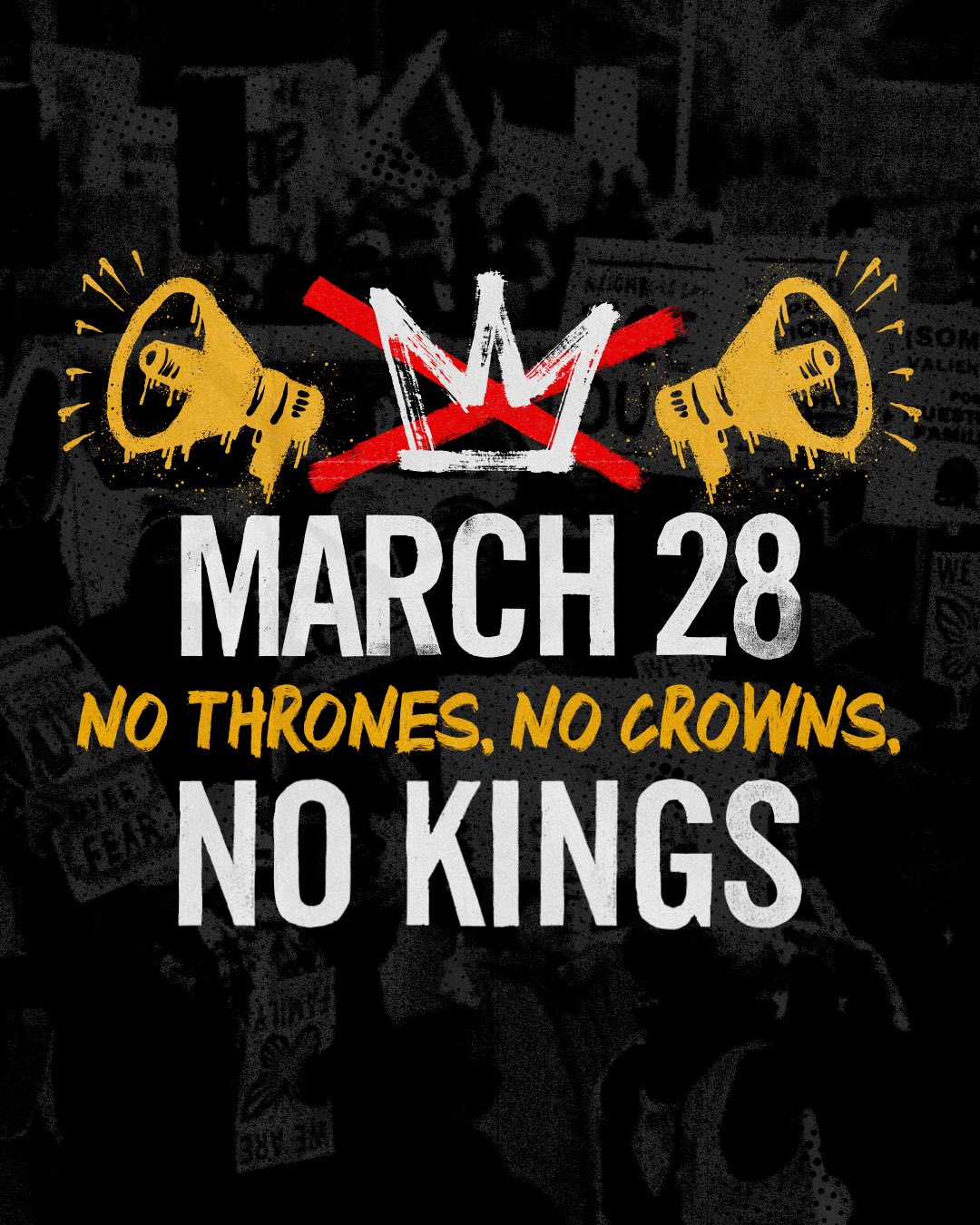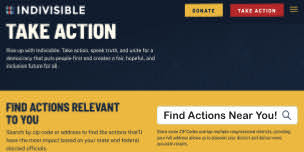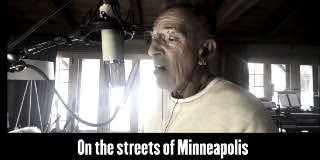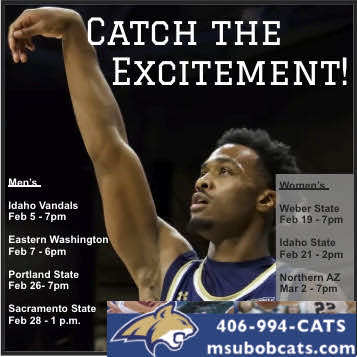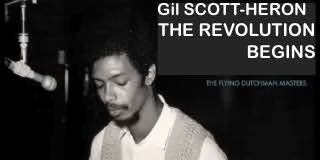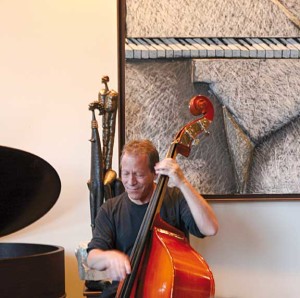 Local music and the arts, bolstered by its many area stages, act arguably as the heart and soul of our not-so-little mountain town. The community suffered a blow on March 7th with the passing of Bozeman jazz musician Kelly Roberti, ending his valiant fight with cancer. In celebration of everything he gave–whether it be one of his many compostions, spirited live performances, or countless other contributions ranging from poetry to cooking, the BoZone looks back to April of 2009 when the Rolling Zone spoke with the man himself. Commemorative introduction by Gaye-Lee Grant. Being a teenager who loved music in the early 1970s in Bozeman was not easy. Two radio stations–one country, one easy listening–and one music store. A desert land, unless you knew the Roberty family. As everyone knows, the habitat of teenagers in the 70s was either a garage or a basement, and on the corner of 8th and Koch, in a mint green house with a three-legged dog named “Lurch,” you could find both.
Local music and the arts, bolstered by its many area stages, act arguably as the heart and soul of our not-so-little mountain town. The community suffered a blow on March 7th with the passing of Bozeman jazz musician Kelly Roberti, ending his valiant fight with cancer. In celebration of everything he gave–whether it be one of his many compostions, spirited live performances, or countless other contributions ranging from poetry to cooking, the BoZone looks back to April of 2009 when the Rolling Zone spoke with the man himself. Commemorative introduction by Gaye-Lee Grant. Being a teenager who loved music in the early 1970s in Bozeman was not easy. Two radio stations–one country, one easy listening–and one music store. A desert land, unless you knew the Roberty family. As everyone knows, the habitat of teenagers in the 70s was either a garage or a basement, and on the corner of 8th and Koch, in a mint green house with a three-legged dog named “Lurch,” you could find both.
You never knocked or rang the bell as Mr. Roberty was at work and Mrs. Roberty gave piano lessons. You went around back though the chain link gate and through the back door. Always unlocked, and in the summer, always wide open. Then down into the basement you went. It always seemed as if some one was there, even if it wasn’t a Roberty kid. Music was always playing. There were four kids: Mike, Kelly, Sue, and Tony–all between the ages of 20 and 11. With friends involved, there were at least ten to fifteen kids there at any given time. We discussed art, music, and politics. It created a bond, a family, that even after many years and teenagers of our own, still exists. In the summer of 1971, oldest brother Mike came home from college for summer break. After a few days of constantly listening to our music (can I say “Led Zeppelin…Led Zeppelin…Led Zeppelin”?), Mike couldn’t take it any longer and gave us some new albums out of his collection. Dave Brubeck! John Coltrane! For Kelly, that was it. He had found his love that never left him and never disappointed. From then on, Jazz and the bass was all he thought of. In fact, I’m not sure if anything but jazz was played in the basement again. So, if Kelly’s music brought you happiness, thank Mike Roberty. I’m sure Kelly would have found jazz later and through another path, but Mike gave us a few more years of it. How lucky were we to have had that freedom allowed by The Roberty’s. The same freedom that helped Kelly grow as a artist and change the “y” to an “i”. “Thank you Kelly, for being my friend. I will miss you and seeing you in so many places around Bozeman. Thank you Mr. and Mrs. Roberty, and thank you Mike.”
Rollin’ with Kelly Roberti. Interview printed April 15th, 2009.
World-acclaimed bass musician and composer Kelly Roberti grew up in Bozeman surrounded by music. He played his first gig at 11 and went on to carve a niche for himself among legendary musical giants. Reflecting everything from Tin Pan Alley to ethnic world, Roberti’s style is a powerful blend of musical passion layered with physical grace and a spiritual edge. He has toured over 150 times with musical giants in jazz, rock, and world music, including Arnett Cobb, Eddie Harris, Peter Gabriel, Freddie Hubbard, Tommy Flanagan and David Murray. Kelly has taught at major educational institutes, has contributed to 51 recordings and has two more in the works. He has performed at nearly every major jazz venue (both clubs and festivals) on five continents. The RollingZone cornered Kelly and sat him down for a chat in April of 2009.
RZ: You grew up in a musical family here in Bozeman. How much did that influence your pursuit of music? KR: My dad was the high school band director, then the Music Supervisor for public schools in Bozeman. He taught in public schools for 42 years. He and my mom (a piano teacher) had the most profound influence of any in my life. I never wondered about a life path — I thought everybody played a musical instrument until I was about 11. As a young kid, some of my memories are sitting in front of a little Motorola monaural record player listening to Broadway, Rogers & Hammerstein. It’s amazing how the melody, rhythm, and harmony of that genre has played into jazz. Everybody around me played guitar, so I told dad I wanted an electric bass. Later, my friends and I started listening to jazz music so I switched to acoustic.
RZ: Did you complete a formal education? KR: Technically, no, but I had the opportunity to learn from my parents and got the technical know how from gigging and road playing. I’m intuitively ambitious and have been awarded an honorary Masters Degree so I could teach at the university level.
RZ: What was your trajectory towards becoming well-known? KR: I left Bozeman in the early 1970s and played bass on the road with various groups. Then I was in a quartet called Open Stream with Fred Raulston, Bob Nell and Jim Honaker. We made a self-titled album in SF, hit the road and had a good tour. Then we played the 1978 Monterey Jazz Festival. After we returned, Nell, Honaker, Chuck Florence and I formed the Montana Jazz Quartet. Steve Aaberg opened Piney Brown’s in Livingston. I played there with Mose Allison and a few others. But, it was hard for jazz in Livingston at the time and the place closed after a couple years. Then Dr. Ray Pratt and Steve Aaberg started the Bozeman Blues & Jazz Society. They asked my trio to back the great jazz artists and that is a long, long, story. I took over the operation of the society after a couple of years and it survived through the mid ‘90’s. I got an amazing education through touring with the greatest living jazz artists.
RZ: Let’s talk about improvisation — what elements go into that? KR: The word ‘improvisation’ is such a mystery to many, so, it’s breaking the mystery — you have to improvise just to drive — everything is a reaction, staying in the moment and staying in front of the moment. Jazz is step by step. Once there, you have to trust yourself and others —open your ears and impulse factors — go with the pulse of the situation you’re in. Of course, you have to know the rules before breaking them and you have to know how to spontaneously analyze. Those who break the rules set the trend for everyone. Then they’re the ones to be analyzed.
RZ: What was playing with Peter Gabriel like? KR: Peter is a great guy. He traveled with a big entourage of 350 people and knew everyone’s name. We flew into Sarajevo in the mid-’90s; we were in a bus driving into the city and it was obvious that bombs were going off everywhere — blown up crap all around— he got up and told everyone it would be alright. There were 160,000 people at the concert in Sarajevo, and Gabriel gave all the money away; most followed his lead.
RZ: What’s going on in your head when you’re on stage jamming? KR: In jazz music, you have to be in the moment, not anywhere else. I don’t think anything and I don’t think about the audience. I want to get to the core of what I feel musically. For me, that means working on the subtleties of being in tune with fellow musicians and every part of the craft: intonation, rhythm, being able to manipulate those. It’s the bass player’s job to give the tune its groove; s/he plays on top of the beat, behind the beat. You have a responsibility if you’re a bass player: it takes a while to break the adage that when the bass starts to solo everyone talks… but you can. It’s like a shaman with bag of bones — he throws them out and starts to read them. But you’ve got to put the bones in there.
RZ: You perform solo as well as in groups — what are the joys of that? KR: I’m not nervous anymore, even in front of lots of people. If you’re out by yourself exposed, any emotional upheaval will translate on stage — as will an incredible joy. When you’re by yourself you have to realize you’re playing in your own personal choir. The audience can be more helpful when I’m playing solo.
RZ: You suffered a terrible accident a number of years ago — what happened and how long has it taken you to recover? KR: Yeah, I had a motorcycle accident on S. Black — it’ll be four years ago June 13th. I was riding my Harley south on Black and glanced over at the baseball fields thinking what a great day it was when a college kid on a cell phone in an SUV pulled out of a parking place. I took the bike down like they say you should, but couldn’t get my left leg out. I slid under the bike and car. He basically dragged me along. I was in bed for a year and had 14 surgeries on various parts and pieces of me. Metal here and there…so on and so forth.
RZ: So, you’re the bionic man now. KR: (Laughs) I’ve got all this metal in me and in the winter it hurts. I was pissed off when the hot springs blew up cause that was my saving grace. But I have great support in town, great friends. Overall it was a very positive experience, since I came out a very different human being. When you sit in bed for a year, you learn a lot about your inner life, which is where you live. As far as playing the bass, I did hurt myself pretty bad but I won’t admit it limits me. I couldn’t play for a long time; I started by leaning the bass against myself in bed. Then I’d get up and play for 10 minutes at a time.
RZ: Can we talk about those tattoos? KR: I’ve got my life story displayed here (shifts position to better display the phoenix on the back of his left hand, the scorpion on the right deltoid, and lifts his shirt to show off the eagle splayed across his chest). It’s about being able to live in Never Never land and insisting on it. The race wasn’t put on this planet to develop this particular culture. A lot of us (musicians) are rebels. I feel like musicians have responsibilities to bark when a stranger walks into the yard.
RZ: How is Jazz at the Equinox (Roberti’s current local project) being received? KR: Very well so far. The Equinox is really important for me right now. It’s been around for 14 years and is a perfect jazz venue at 90 – 100 seats. That’s the capacity for a small town. If bigger artists come in, they can play two nights. I have heard some grumbles about the ticket prices ($18 – $20), but if you buy season tickets it takes some dollars off every show. The series is a showcase for the wonderful jazz players in the area…their thing! After this first series I hope to begin the Monday night Library series where I interview an artist who will play a Friday night gig at the Equinox during the summer.
RZ: Your bass playing has been described as “virtuosic, earthy and meticulous.” Comment, please. KR: I love the bass; particularly its woody, ancient nature. It produces a sound you can really control. And it’s physical; you have to use some real physical stuff to coax out the secrets of projection. Called by any name (acoustic bass, contra-bass, upright bass, fiddle, doghouse bass), it’s really cool. You find new techniques and ways to use them to complement what you have to say. If you plan too much, you’re not playing jazz.
RZ: What do you mean when you say that true music is an indefinable communication — physics, philosophy, history, mathematics and, to you, a big dose of romance. KR: With physics, it’s about the invisible angles, about how you’re going to make things go together. The music of the spheres has to do with physics, numerology and the whole shot. It’s not very definable. We’d be a mess if we could define what music does to us or what a painting does. I’m romantic about being able to do exactly what I want to do. I’m stubborn about that. Sometimes you have to weather the storm about what people say about what you do, but you can only be what you’ve lived or dreamed; express the pulse of your nature. RZ: That stubborness has helped you in overcoming addictions, no? KR: I finally quit smoking after 40 years. Cold turkey. I’ve quit gambling and drugs. I wasn’t gonna let it beat me. I figure I’m not adding a lot of years to my life, but the quality is so much better.
RZ: What is your driving philosophy? KR: I want to give what I have been given. I want to contribute to the tradition — the true human condition — and to the next generation. When I was 18, an old drummer told me; ‘you have to go into this music so you can give something to the music — it’s an entity.’ Some of these old jazz artists treated us like they needed to pass something on. They’d say; ‘You’ve got a great sound. Use your sound, not your technique.’ Jazz is subtle. It can die, and it has come close to doing that. As of late, jazz incorporates everything around, adding to the encyclopedia of the genre — and artists know how to ‘steal’ in the right way. Charlie Parker tunes still sound great… you have to know them, but also add a layer or two. And be a businessman, because they’re not playing jazz on the airwaves (other than by dedicated humans like Brad Edwards). Corporate America and the record companies have tried hard to take indi-entrepreneurs out of the picture.
RZ: How are things going for you in this economy? KR: I have a handful of private students and want another handful. I charge a lot and don’t take beginners. Bozeman has become a hard place to make a living in; seems I have to leave the country to make a living.
RZ: You seem to have a ton of energy! KR: I get up at 5 am and jump into my life. I drink two cups of coffee; check my e-mail, then check my schedule for future bookings. Then I look at my music to make sure my next gig is better than my last. I play the bass. I used to sleep 3 – 4 hours / night; now it’s at least 5 – 6, and now and then I do the big crash — 9 hours.
RZ: What do you do when you’re not working? KR: I love to cook, love Italian and French food. It’s a meditational thing for me. When it’s warm I walk. Before the wreck I walked 60 miles a week. I practice, compose, clean the house.
RZ: Who do you most admire musically? KR: Lately, I’ve been listening to Van Morrison and Seal; I’m making an arrangement of his song, “Love’s Divine.” The greats really separate themselves from the crowd. I have three terrabyes of mp3 files on my computer. That’s 400,000 tunes that cover every genre from every continent on the planet. On the random setting they would play for 20 years.
RZ: You are someone who has really embraced technology; tell us why you’re such a fan. KR: Technology can be very positive if used in the right mindset. You can do new things. I record into my computer, which I consider to be my thought studio. I don’t self-produce my music, but I manage to get a record or two done every year. The next one is ballads; I’m proud of it. Eric Funk, Alan Fauque, and David Murray are on it, and Jeni Fleming will sing, including one tune with MJ Williams. Record companies have such a limited mindset thinking they can’t market jazz. Now no recordings sell.
RZ: What do you think about free music downloading? KR: It can be helpful, if you’re smart. I think savvy musicians know how to create a website, maintain it and give away the right amount of music so they connect with people. On the web you become your own conglomerate. You could have five or ten sites and link them, sell product and kiss the record companies good-bye. Ani DiFranco is a great example of someone doing this very successfully. Go onto a torrent site and post your own torrent. Instead of 5 – 25 units, you can sell hundreds, even thousands.
My new website (kellyroberti.com) will have all my old vinyl and CDs (50+) available free. The new stuff, no. Maybe a snippet. Better to ensure your future and some legacy than to say ‘you’ve got to pay.’
You should share music and art. A Kelly Roberti memorial concert and fundraiser will be held at the Eagles Lodge on Sunday, April 10th beginning at 3:30pm. •

